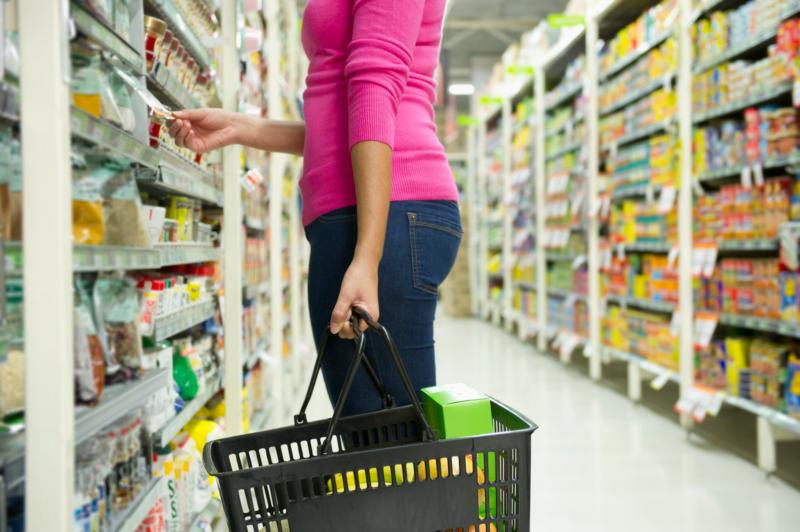AUSTRALIA has the most concentrated supermarket sector in the world, with a 70% market share for Coles and Woolworths, and 90% market share in the hands of just four supermarkets. It means Australian farmers are exposed to highly concentrated domestic markets with these powerful supermarkets and processors.
Having to deal with large organisations with significant market and bargaining power has meant farmers’ margins have been squeezed, often to below the cost of production. Supermarkets have introduced private labels and exclusive supply chains, entrenching their power and reducing competition.
Regulators have failed to curb this excessive power, creating significant detriment to less powerful suppliers such as farmers, and hollowing out the supply chain. In the long term, consumers will be worse off through less choice and innovation in products, less supply chain investments in efficiency and productivity, and potential shortages of products.
Small businesses, particularly farmers, within food supply chains have been let down by competition policy in Australia.
_preview.jpg) Grocery market share by company (2018).
Grocery market share by company (2018).
There has been a failure to address the significant and undue power of supermarkets, large intermediaries and processors. This is the result of gaps in the policy framework that unintentionally focus on short-term consumer benefit to the detriment of value creation, and gaps that fail to address monopsony-like power [a single buyer with a choice of multiple sellers] in supply chains.
RELATED: Country of origin labelling
This competition policy failure is also due to inadequate enforcement and compliance regimes, including regulator and third party-enforcement, which fail to check the undue power of large organisations, and thereby fail to set the competitive culture and norms of behaviour within these markets and supply chains.
 Under concentrated supermarket power, consumers are worse off due to reduced options and less innovation. Source: Getty Images.
Under concentrated supermarket power, consumers are worse off due to reduced options and less innovation. Source: Getty Images.
Dairy farmers struggle to remain profitable
Take the example of Australian dairy farmers, who are some of the most efficient and productive in the world, employing best practice. Despite this, they struggle to remain viable due to the volatile nature of international prices, which often fall below cost, and the superior bargaining power of processors and supermarkets, which can extract most of the economic surplus within the supply chain.
The business model of dairy farms in Australia has undergone significant change with the utilisation of economies of scale. According to Dairy Australia,the average dairy herd size has increased from 200 to 300 in less than two decades. Only New Zealand has larger dairy herds, with most competing countries having herd sizes well below 150.
Australian dairy farmers are also early adopters of technologies that reduce input costs such as electricity; with world-leading rates of adoption for distributed energy resources [for example rooftop solar units or biomass generators].
Despite this, dairy farming is becoming increasingly unviable in all but a few regions in Victoria. While processors and manufacturers have negotiated cost adjustment provisions with supermarkets, dairy farmers rarely see the benefits of such arrangements.
RELATED ARTICLES:
Greater profits by skipping major milk processor
Why solar stacks up for farmers
Solar power: the sky’s the limit
_preview.jpg) Fresh milk retail shares throughout Australia.
Fresh milk retail shares throughout Australia.
As NSW Farmers highlighted in a submission to the
Australian Competition and Consumer Commission (ACCC) Dairy Inquiry, persistently low farmgate milk prices would reduce the financial resilience of farmers to produce during extreme weather conditions, and during business cycles where input costs, such as energy, water and feed, become extremely expensive. NSW Farmers warned the erosion of this resilience would lead to potential shortages of dairy products for consumers. The ACCC inquiry dismissed these concerns.
In April 2019, NSW consumers faced dairy shortages with supermarkets unable to provide supply of popular products. Lion, one of the largest processors in Australia, noted: “Extreme weather conditions… with significant cost increases across water, feed and energy, have contributed to the challenges facing dairy production in Australia which has resulted in lower milk supply.”
RELATED ARTICLES:
Milk wars: farmers take on dairy alternatives
Dairy farmers in danger of disappearing from industry
Glenmore farmers are teaching about the importance of the dairy industry
Of most concern is the fact shortages have impacted smaller retailers, such as IGA, with supply to the large supermarkets, Coles and Woolworths, prioritised by processors. This further demonstrates the market concentration in the retail sector, and further entrenches the big-two’s dominance. Other supermarket suppliers have been threatened with delisting by the major supermarkets when seeking negotiations on price and terms. Smaller suppliers have had to comply, for fear of being delisted.
This has led some major suppliers, such as Nestlé, to refuse to supply the supermarkets until fair negotiation processes are established by the supermarkets. This has meant shortages of products on supermarket shelves, such as cereals and pet food. These shortages are a terrible outcome for consumers.
_preview.jpg) Tricks of the trade used by supermarkets:
Tricks of the trade used by supermarkets:
- Private labelled products: Private labelling helps retailers differentiate themselves from competitors by giving them unique products. The large distribution channels of supermarkets enhance their purchasing power, allowing them to purchase and sell products for less than their smaller competitors.
- Control of the supply chain: Integration and control of supply chain data in the hands of supermarkets entrenches their superior bargaining power.
While regulators have shown little concern in addressing the adverse supply chain impacts of $1-a- litre milk, Woolworths unilaterally moved to increase the price of its private-label milk in February, and share that increase with farmers. This was in response to Woolworths’ engagement with the farming sector, which noted the cost structure within the supply chain meant many farmers were producing at below cost, affecting supply; a bad outcome for consumers.
Belatedly, other major supermarkets have adjusted the price of private-label milk in recognition of the adverse supply chain issues. Woolworths should be commended for taking leadership on the issues.
**This is an edited extract from the paper Competition Policy & Food Supply Chains: Time for a Rethink, by NSW Farmers’ chief economist Ash Salardini. Read the full report HERE.
Australia needs real supermarket competition
 James Jackson, President, NSW Farmers
James Jackson, President, NSW Farmers
Successive governments have failed to provide free and fair international trade for Australian producers, and regulators have not been willing to tackle the significant market power of domestic buyers, such as the large supermarkets and processors.
International agricultural markets are defined by protectionism. Dairy markets in the European Union, the United States and Canada all have import quotas and significant direct and indirect subsidies for their dairy farmers.
“The international market is merely a dumping ground for excess supply, leaving Australian dairy farmers at the behest of a market that is defined by below-cost production.”
The power of the supermarkets and some food processors has been left unchecked by regulators and policymakers alike. The Australian grocery market is the most concentrated market in the world, yet this triggers very little policy or regulatory concern.
This lack of competition has allowed those with power to extract unreasonable economic surplus from food supply chains, hollowed out these supply chains, and reduced investment in efficiency-enhancing measures and innovation.
It has also put into question the viability of many types of farming, where farmers are often squeezed to the point they have no choice but to offer goods at below cost.
In the long-term, consumers will be left worse off, with less choice and product innovation. There will be shortages of products available to consumers, as we have seen with dairy and other consumer goods, and a subversion of price competition once power has been consolidated by the supermarkets.
Farmers are not rejecting the principle of competition; they are rejecting the lack of real competition in food supply chains.
Farmers fight for fairer prices
.jpg) NSW Farmers Dairy Committee chair Colin Thompson. Photography by Pip Farquharson.
NSW Farmers Dairy Committee chair Colin Thompson. Photography by Pip Farquharson.
Incoming NSW Farmers Dairy Committee chair Colin Thompson has pledged to continue advocating for more sustainable milk prices.
“The challenges facing the NSW industry are significant, with increasing input costs and stagnant prices. We must remedy this and ensure that we get a fair milk price,” Colin says.
“Our dairy farmers produce a high-quality product every day of the year, but are getting less and less money at the farm gate. Milk and other dairy products continue to be devalued in the eyes of the consumer by retailers heavily discounting the products.”
Colin grew up on a family farm in Narooma before moving to the Central West to start a new dairy after the deregulation of the NSW dairy industry. He now owns and operates a dairy enterprise, Silvermere Holsteins, at Cowra and has a wealth of experience in the business.
“Farmers at the end of the chain are the ones getting hurt by this retail price squeezing,” he says. “This will continue to be a focus for our committee until there is a viable solution.”
Colin thanked outgoing chair Erika Chesworth for her leadership and commitment to the industry over the past three years. “Erika has brought a huge amount of passion and commitment to the role and that has been vital in raising the profile of industry issues and inspiring consumer support for dairy farmers. I look forward to continuing this work.”
Steps to creating a more sustainable food system
- Limiting supermarket power
A review of unconscionable conduct provisions is required to provide practical avenues to challenge the monopsony power of supermarkets and processors within food supply chains.
- A fair go for small business
A review of the principles of Australia’s National Competition Policy is required. The European Union has specific fairness provisions that look at bargaining power and ensuring viable supply chains.
- Effective enforcement
Adequate resourcing of the ACCC is needed. The lack of enforcement is of particular concern within food supply chains, where many farmers and suppliers are reluctant to come forward against powerful organisations for fear of being locked out of supply chains.
- Enabling third party enforcement
Cost-effective dispute resolution and access to justice for small businesses and farmers is essential for the functioning of Australia’s competition law. NSW Farmers recommends a no-cost order mode of litigation for small businesses and farmers under certain conditions.
- Government support for a unified farming sector
Australia is in the bottom half of OECD countries with respect to investment in its food and agricultural sectors by government. Targeted investments will create a step change in the agricultural sector.
- Challenging power
NSW Farmers welcomes the NSW government’s commitment to establish an Agricultural Commissioner and a Dairy Advocate. They should investigate potential competition issues and breaches within NSW food supply chains, assist in the implementation and management of food-related codes and make recommendations on competition policy to state and federal governments.